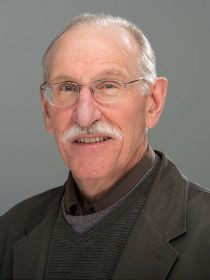
Michael W. Howard
Connect with Michael
About Michael
Howard's research focuses on sharing the burdens of climate change equitably, and universal basic income. Overarching themes in Howard's writings include carbon dividends as a form of partial basic income, whether basic income is exploitative, and what justice requires of states in sharing the burdens of climate change. Howard serves as President of the US Basic Income Guarantee Network, and co-edits the journal Basic Income Studies.
Contributions
How Alaska Citizens Benefit Equally from Shared Wealth
In the News
Publications
Discusses how the Margaret Chase Smith Policy Center invited local, regional, and international experts on universal basic income (UBI) to participate in a new feature: Maine Policy Perspectives.
Addresses the questions: What is a basic income? Is it a desirable and feasible policy? And could such a policy be implemented on a state or local level?
Offers a comprehensive discussion of all the important aspects of the Basic Income debate for academics, policymakers and interested individuals.
Describes how Universal basic income (UBI) is in the news, and is being considered by leading politicians (including Obama and Clinton), titans of business (including Facebook co-founders Mark Zuckerberg and Chris Hughes, and venture capitalist Sam Altman), and union leaders such as Andy Stern. Mentions how there are many factors contributing to the news explosion, including the 2016 Swiss referendum, and basic income pilot projects in Canada, Finland, India, and elsewhere.
Studies the Feasibility of Creating Basic Income Security (referred to in this report as the “study committee”) with the passage of Resolve 2019, chapter 82.